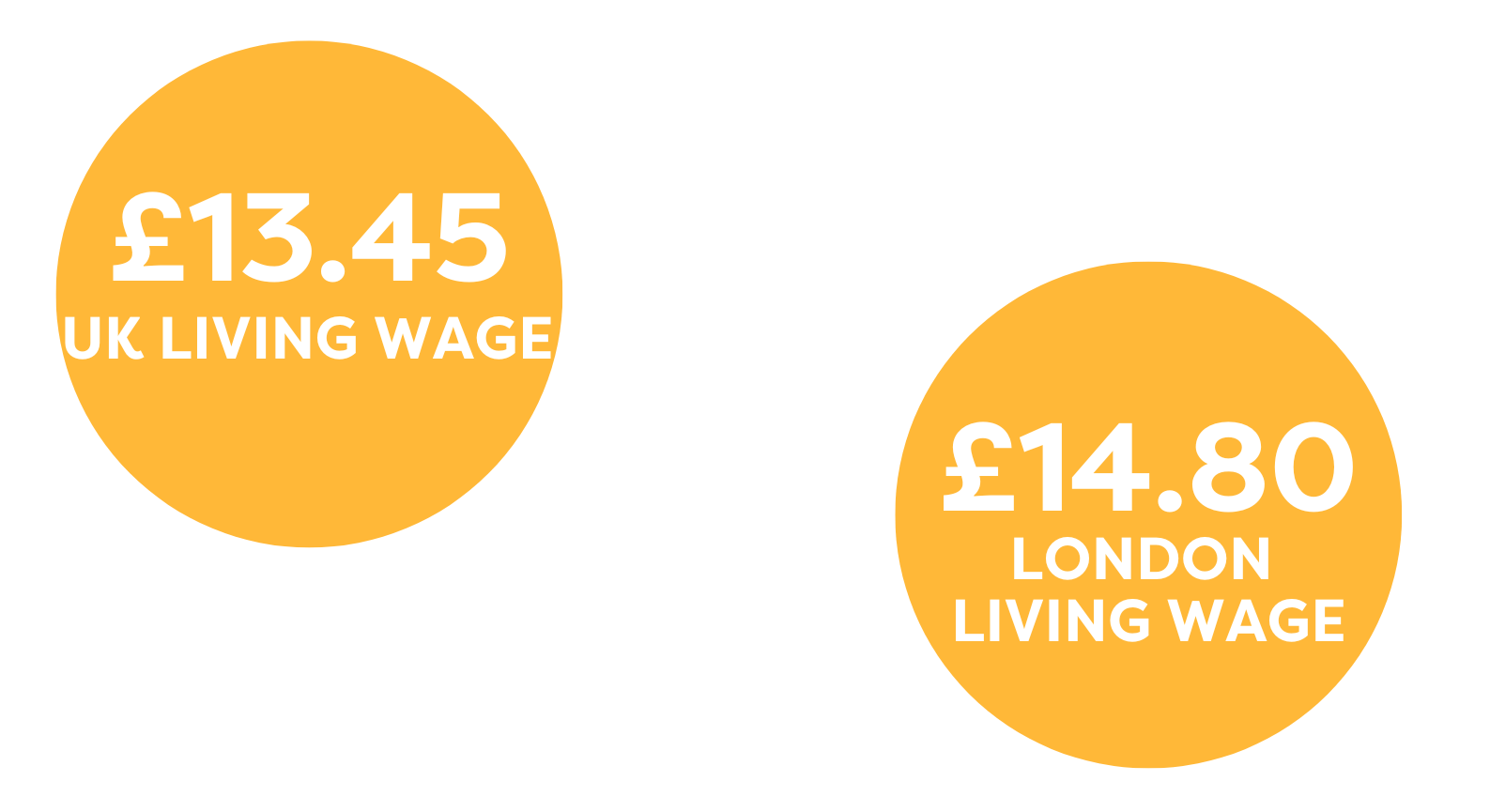
The Real Living Wage

Impact – Why The Real Living Wage Matters
People who are earning less than the real living wage struggle to afford the basics. The real living wage is independently calculated to ensure it covers what is needed to live in the UK and helps reduce wage inequality.
Uplifting people to real living wage may represent a short-term cost, but long-term gain in terms of increased retention and a reduction in recruitment costs.
Recognised Service Providers
We recognise, however, that paying the real living wage can be really difficult for businesses who are tendering for work where the real living wage is not mandated as part of the contract. In order to compete effectively, they need to bid at the market rate of national living wage. Some businesses may do this and still guarantee the real living wage to their staff, but this means they will run that contract at a loss. We appreciate this is not sustainable in large numbers, however much that individual business cares about payment of the real living wage.
Recognised Service Providers, as established by the Living Wage Foundation, pay all their directly employed staff that are not tied to client contracts the real living wage. For those employees tied to client contracts, they commit to submit a real living wage bid alongside the market rate they provide. This means the client always has the choice to implement the real living wage at the point of tender.
We want to recognise the commitment of Recognised Service Providers to the real living wage, and their leverage with clients to seek to make this the established pay rate. Therefore, we welcome them because of their genuine commitment to paying the real living wage and will allow them to receive Good Business Charter accreditation on these grounds.

As Employee Component Partner of the Good Business Charter, the CIPD supports the Charter and our focus on caring for employees. The CIPD are the professional body for HR and people development, who champion better work and working lives, and offer a range of resources. Read more about the partnership and what it means for GBC-accredited organisations and CIPD members here.










